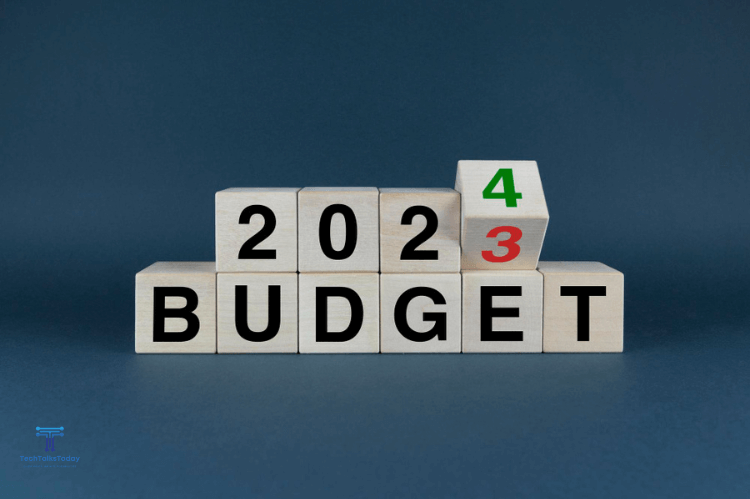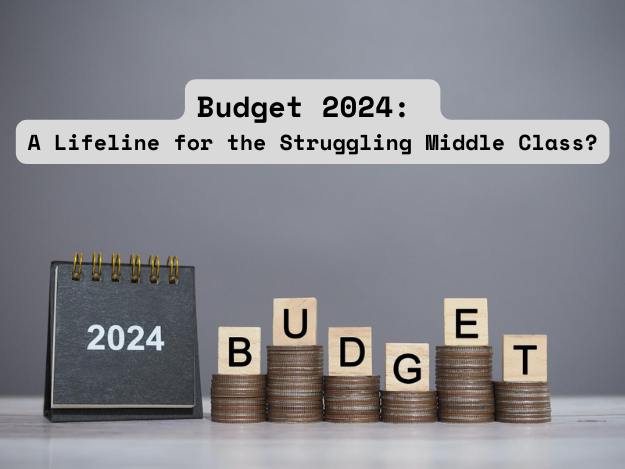Tomorrow, on 1 February, Finance Minister Nirmala Sitharaman is scheduled to present the Interim Budget 2024. This budget holds significance as it serves as a temporary measure due to the upcoming general election in April-May. The complete budget will be presented in July by the newly elected government, regardless of whether it is a re-elected or new administration. The middle class is eagerly anticipating income tax reforms that would allow them to reduce their tax burden. Specifically, they are hopeful for an increase in tax exemption limits in various sections such as Section 80C and Section 80D.

1) Revision of Income Tax Slabs in Budget 2024
There is growing anticipation among the middle class for a revision in the income tax exemption limit, which is currently set at ₹2.5 lakh. During the presentation of Budget 2023 on 1 February 2023, Finance Minister Nirmala Sitharaman made adjustments to the slab rates for individuals who choose to adopt the new income tax regime.
- No tax would be levied for income up to ₹3 lakh
- Income between ₹3-6 lakh would be taxed at 5 per cent
- Income between ₹6-9 lakh would be taxed at 10 per cent
- Income between ₹9-12 lakh at 15 per cent
- Income between ₹12-15 lakh at 20 per cent
- Income of ₹15 lakh and above will be taxed at 30 percent.
2) Increase in the limit of Section 80C in Budget 2024
The current limit of ₹1.5 lakh for investment deductions under Section 80C has remained unchanged for over a decade. To promote higher tax savings and encourage increased investments, it is imperative to raise this limit. Balwant Jain, a tax and investment expert based in Mumbai, suggests that the previous limit of ₹1 lakh, set in 2003, is outdated. The subsequent increase of 50% in 2014 falls short of the average annual inflation rate during the same period. Therefore, Jain recommends a minimum direct increase to ₹2.50 lakh.
3) Increase in standard deduction
The Finance Act of 2018 implemented a Standard Deduction of ₹40,000 from salary, which was subsequently raised to ₹50,000 in 2019. However, given the escalating costs of medical expenses and fuel, there is a compelling argument to further elevate the standard deduction threshold from ₹50,000 to ₹1 lakh.
4) Relief for homebuyers
Budget 2024, Under the current regulations stated in Section 80 C of the Income Tax Act, individuals have the opportunity to avail a deduction of up to ₹1.5 lakh from their taxable income. This deduction can be claimed for the repayment of the principal amount of a housing loan taken for a residential house. It is important to note that this deduction can be claimed in addition to other eligible expenses, including life insurance premiums, tuition fees, contributions to Provident Fund and Public Provident Fund, EPF, investments in ELSS, National Saving Certificates, and tax saving bank FDs, among others.
Balwant Jain suggested that in the upcoming budget, the finance minister should consider introducing a distinct deduction for the repayment of home loans due to the overcrowding of Section 80 C, 80CCC, and 80CCD(1), as well as the increasing demand for larger home loans. He also mentioned that inspiration could be drawn from Section 80EEA, which introduced a separate deduction in 2019 for the interest on home loans for first-time home buyers.
5) Expansion of the 80D deduction threshold
Archit Gupta, the Founder and CEO of ClearTax, suggests that there should be an increase in the deduction limit under Section 80D for medical insurance premiums. He proposes raising the limit from ₹25,000 to ₹50,000 for individuals and from ₹50,000 to ₹75,000 for senior citizens. This adjustment is necessary to address the escalating healthcare expenses in Budget 2024. Furthermore, extending the benefits of Section 80D to the new tax regime would contribute to ensuring fair and equal healthcare access for all.
Disclaimer
Please be aware that the opinions and suggestions expressed above belong to individual analysts and do not represent the views of TechTalksToday. We strongly recommend that investors consult certified experts before making any investment choices.

